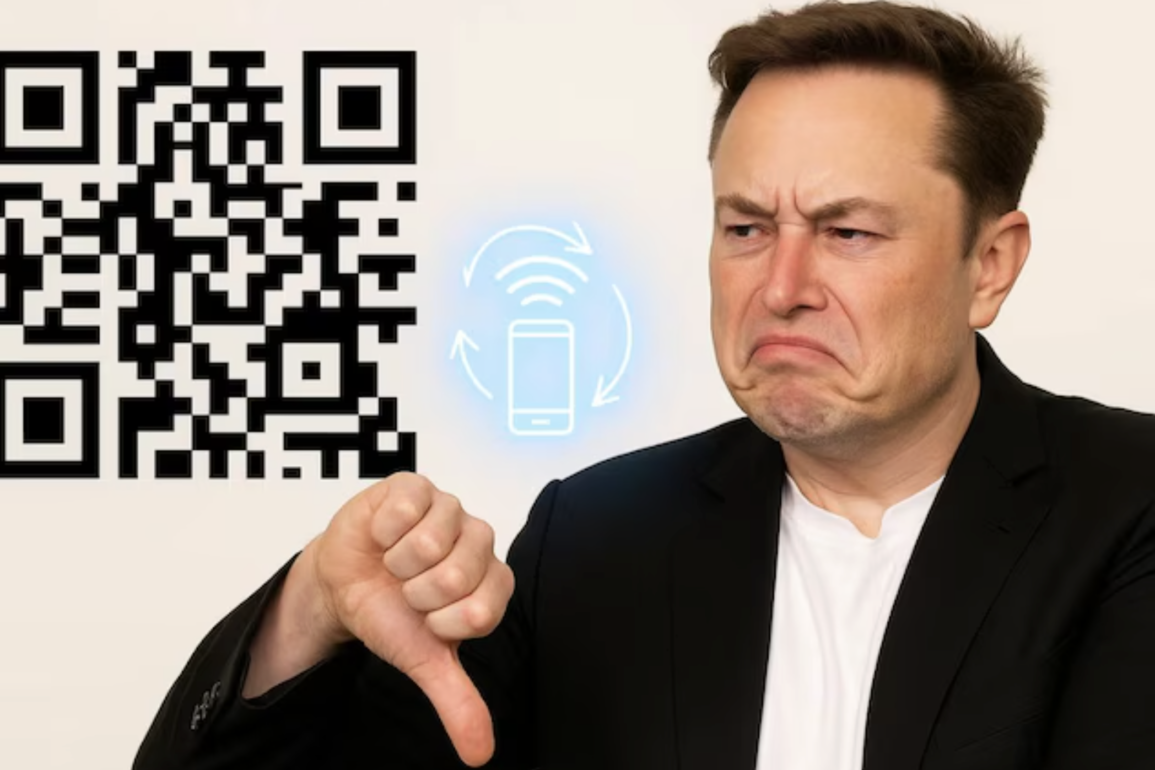When Elon Musk declares, “I hate QR codes. Such an eyesore,” it’s easy to dismiss it as another one of his internet provocations. But the billionaire’s gripe with the black-and-white boxes touches a cultural nerve: in an age where nearly everything can be scanned, swiped, or tapped, are QR codes symbols of progress, or of tech fatigue?
The conversation began when Swedish journalist Peter Imanuelsen wrote on X, “I’m never ordering from a QR code menu at a restaurant.” Musk’s reply set off a flurry of reactions from diners and developers alike. Some users shared his irritation with what one called “aesthetic pollution.” Others rushed to defend QR codes as efficient and environmentally friendly.
The Case for QR Codes
QR codes became the quiet workhorses of the pandemic, a way to avoid touching shared surfaces while keeping restaurants running. They’re cheap to print, easy to update, and nearly universal. For small businesses, they offered a lifeline.
“Do you have a better alternative? I find them convenient,” one user shot back at Musk. The practicality is undeniable: a single code can hold menus, Wi-Fi passwords, loyalty programs, and even payment systems. When inflation or supply shortages hit, restaurants can update prices instantly without reprinting.
Accessibility is another overlooked advantage. Digital menus can be read aloud by screen readers for visually impaired users and translated automatically for tourists. In theory, that’s inclusivity powered by technology.
The Case Against
Still, as many diners will tell you, theory doesn’t always match experience. QR menus often load slowly, crash mid-order, or redirect to clunky websites filled with pop-ups and ads. What was meant to streamline a meal can end up disrupting it.
Critics say QR codes erode a tactile part of dining culture, flipping through a paper menu, circling your favorite dishes, sharing a page with a friend. “Agreed, nothing kills an appetite faster than a software update before dessert. 😄 Bring back real menus and real conversations,” one user wrote under Musk’s post.
Others mocked their ubiquity. “I think they are hilarious. My favorites are the ones on websites. It’s like, how am I supposed to scan this on my phone I am using to view this website? Little traps of pure irony,” joked another.
There’s also a privacy cost. Scanning a QR code often links to websites that quietly collect data — what you browse, where you’re located, and even how long you linger before placing an order. What looks like convenience can double as surveillance.
Beyond the Box
Some users saw opportunity in Musk’s complaint. “Why do human eyes need to see what cameras can detect without it. It should be invisible ink inside a cute smiley or something,” one suggested. Another wrote: “Ditch QR scans for voice menu chats that serve up options, swaps, and orders. Grok Voice Menu.”
Those ideas hint at what may come next — technologies that make interaction seamless, even invisible. Augmented reality, voice AI, or ambient computing could eventually replace the humble QR code. But for now, those pixelated squares remain the bridge between analog and digital worlds — and the battleground for our growing ambivalence toward convenience.
In the end, Musk’s gripe may not be about QR codes at all. It may be about the creeping sense that in automating everything, we’re losing a small but meaningful part of human ritual — something that no scan, however smart, can quite replace.




